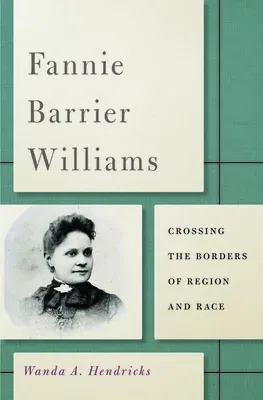Wanda A Hendricks
(Author)Fannie Barrier Williams: Crossing the Borders of Region and RacePaperback, 12 December 2013

Qty
1
Turbo
Ships in 2 - 3 days
In Stock
Free Delivery
Cash on Delivery
15 Days
Free Returns
Secure Checkout

Part of Series
New Black Studies
Print Length
256 pages
Language
English
Publisher
University of Illinois Press
Date Published
12 Dec 2013
ISBN-10
0252079590
ISBN-13
9780252079597
Description
Product Details
Author:
Book Format:
Paperback
Country of Origin:
US
Date Published:
12 December 2013
Dimensions:
23.11 x
15.49 x
2.29 cm
ISBN-10:
0252079590
ISBN-13:
9780252079597
Language:
English
Pages:
256
Publisher:
Series:
Weight:
408.23 gm